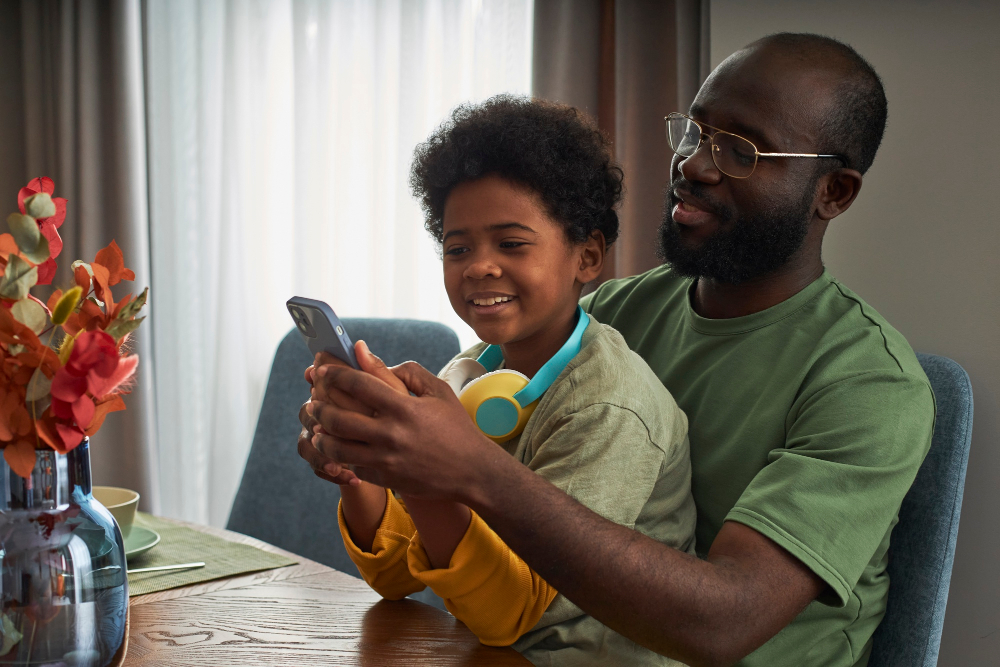In today’s digital world, your child is likely spending more time online than ever—learning, socializing, and exploring. While the internet offers tremendous opportunities, it also exposes children to serious risks such as cyberbullying, online predators, harmful content, and digital addiction.
As a parent in Kenya—or anywhere in Africa—you are your child’s first line of defense. With the rise of smartphones, gaming, TikTok, YouTube, and social platforms, knowing how to protect your child online is not optional—it’s essential.
Good news: you’re not alone. The Communications Authority of Kenya (CA) has developed strong Industry Guidelines for Child Online Protection and Safety (April 2025) to guide service providers and empower families like yours.
🌍 Why Child Online Safety Matters
Children are naturally curious and trusting. This makes them vulnerable to:
- Cyberbullying
- Online predators and grooming
- Harmful or sexual content
- Fraud, identity theft, and scams
- Radicalization and misinformation
These risks are real—and growing. That’s why the CA’s 2025 guidelines place a strong emphasis on making the online world safe by design and inclusive for all children, regardless of their background or location.
📜 What the Law Says in Kenya
The CA’s guidelines require all internet service providers, telecom operators, app developers, and digital content creators in Kenya to take concrete steps toward child online protection. These include:
- Age-appropriate design of websites and apps
- Tools for parental control and content filtering
- Clear policies on reporting and removing harmful content
- Public education campaigns targeting children, parents, and teachers
These rules are not optional—they are enforceable and must be implemented within six months of the CA’s publication (April 2025).
👨👩👧👦 What YOU Can Do as a Parent
1. Talk to Your Child
Start by having open, honest conversations. Ask them what apps they use, who they talk to online, and how they feel after being online. Make it safe for them to tell you if something goes wrong.
“Our children need to know they can come to us—without fear of punishment—if they experience something scary or uncomfortable online.”
2. Set Boundaries
- Limit screen time and designate tech-free zones, like during meals or before bed.
- Make a family online safety agreement—keep it simple and visible in your home.
- Avoid giving very young children unsupervised access to the internet.
3. Use Parental Controls
Most phones, tablets, smart TVs, and apps now include built-in safety features:
- On Android: Use Google Family Link
- On iPhones/iPads: Enable Screen Time settings
- On YouTube: Turn on YouTube Kids or Restricted Mode
You can also install additional apps like Kaspersky Safe Kids, Qustodio, or Net Nanny.
4. Stay Involved
- Watch YouTube videos or play games with your child.
- Follow the influencers they follow.
- Explore digital safety resources together from platforms like cop.ke-cirt.go.ke, a CA-supported website.
🚨 What to Do If Something Goes Wrong
- Don’t panic—your support matters most.
- Document the incident with screenshots or messages.
- Use in-app reporting features or contact the platform’s help center.
- If serious (e.g. cyberbullying, sextortion, grooming), contact:
- The Kenya Police Service – Cybercrime Unit
- Your internet service provider
- Communications Authority of Kenya complaint system
🤝 The Role of Schools, Community & Government
You are not alone in this journey. The CA works with:
- Schools to integrate digital literacy and online safety into the curriculum
- Telecom companies to provide safer networks
- Local communities and NGOs to raise awareness, especially in rural areas
Programs like “Huwezi Tucheza, Tuko Cyber-Smart” target both children and parents through events and radio campaigns.
✅ Quick Checklist for Parents
| ✅ Task | Description |
|---|---|
| Talk often | Discuss your child’s online life openly |
| Set rules | Agree on screen time and safe behavior |
| Use tools | Activate filters and monitoring apps |
| Learn together | Explore digital safety with your child |
| Report problems | Know how to escalate serious issues |
📘 Final Word
Protecting your child online starts at home. The internet doesn’t come with a parenting manual—but with love, boundaries, and guidance from national organizations like the Communications Authority of Kenya, you can help your child thrive safely in the digital age.
“The best filter is not the one you install on your child’s device—it’s the one you build into their thinking.”
So take a moment this week: talk, connect, learn, and lead. Your child is counting on you.





Simple guide. It’s good to know the authorities in Kenya working to protect children online.